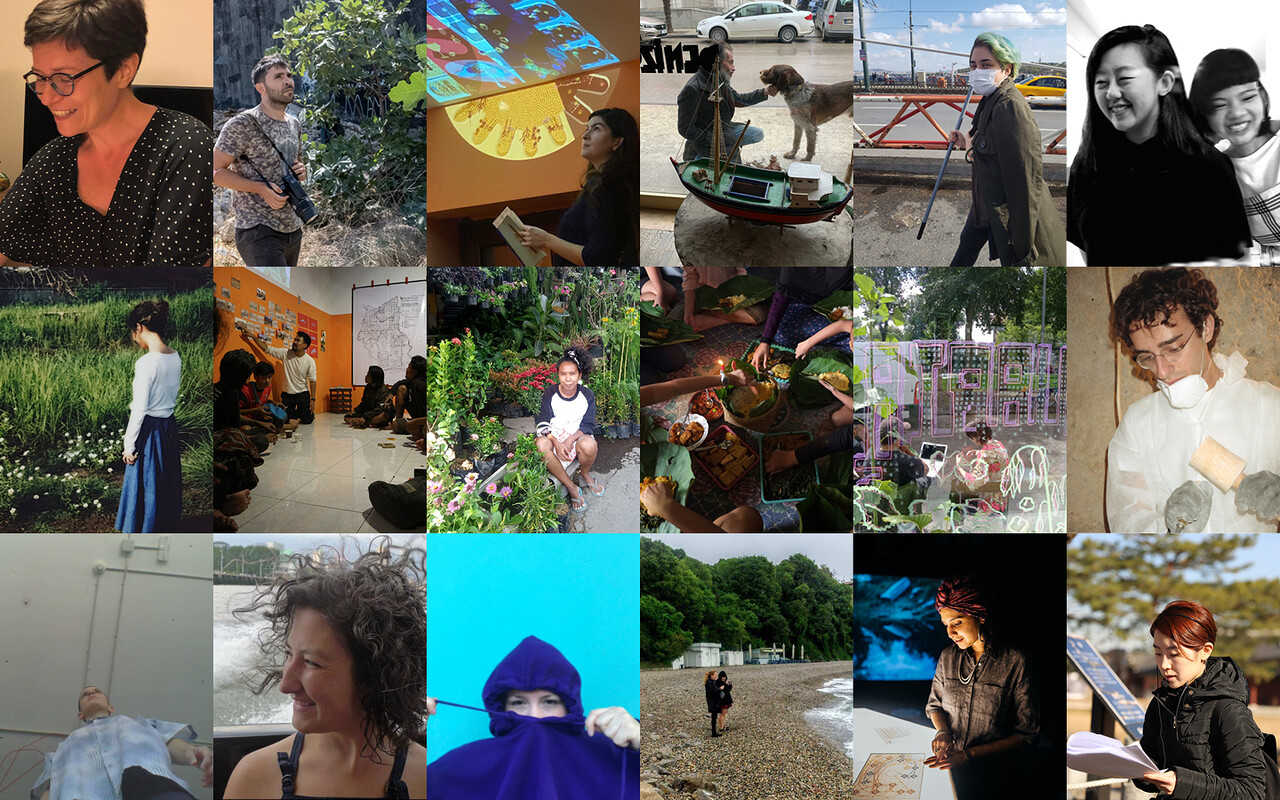The extended DAI family is more than proud of our recent alumni Yen Noh (DAI, 2019), Gayatri Kodikal (DAI, 2020) and Philippa Driest (DAI, 2021), who will be 2021/2022 Fellows within the BAK Fellowship for Situated Practice. This year's edition of this post-academic program will take place in a truly amazing constellation of dispersed yet interconnected research cells that collaborate across distance from Istanbul, Jakarta, Utrecht, and online. Congratulations to Yen, Gayatri and Flip for this well deserved research opportunity. Our felicitations extend to BAK, basis voor actuele kunst for its visionary selection of fellows and projects.
BAK, basis voor actuele kunst, Utrecht is proud to announce the 2021/2022 Fellows within the BAK Fellowship for Situated Practice post-academic program, taking place in a constellation of dispersed yet interconnected research cells that collaborate across distance from Istanbul, Jakarta, Utrecht, and online.
Hosted by the The Istanbul Biennial Production and Research Programme at Istanbul Foundation for Culture and Arts (İKSV), Istanbul, the Istanbul cell is composed of artist Özge Açıkkol; artist and researcher Kerem Ozan Bayraktar; artist and researcher Ilgın Hancıoğlu; choreographer and performance artist İlyas Odman; and artist and writer Marina Papazyan.
Hosted by GUDSKUL, Jakarta, the GUDsel includes art workers Dika+Lija (Anathapindika Dai and Liza Markus); artist, art teacher, and activist Alexandra Karyn; researcher and curator Rifandi Septiawan Nugroho; cultural activist Anitha Silvia; and writer and curator Gatari Surya Kusuma.
The online Cell for Digital Discomfort consists of researcher and designer Cristina Cochior; designer, researcher, and web developer Karl Moubarak; and researcher-artist Jara Rocha.
The BAK cell in Utrecht is composed of architect and researcher Merve Bedir; artist Philippa Driest; performance and media historian Megan Hoetger for the Zone Collective; artist, writer, educator, and game maker Gayatri Kodikal; and visual and performance artist Yen Noh.
The Fellows have been selected on the basis of their proposals to develop experimental research within the expanded field of contemporary art and in connection with the overarching “Spectral Infrastructure” research trajectory, which issues from BAK’s long-term collaborative trajectory with the freethought collective. From within their own research practice that unfolds through collective study and a variety of public programs, freethought holds regular seminars and conversations with the Fellows. Within this context, the Fellows develop their research individually, as well as collaboratively within respective research cells and collectively among the entire cohort through exchange with and across four research cells.
BAK has been developing its post-academic Fellowship program since 2017. Prompted by the impending “age of pandemics” and in sync with BAK’s ongoing experimentation with “instituting otherwise,” the 2021/2022 BAK Fellowship for Situated Practice seeks to explore the possibility of a distributed and coalitional practice based on affinity with other institutions and movements situated in contexts with overlapping histories and entangled urgencies. In this framework, the Fellowship cells work collaboratively to study and tackle forms of spectrality, seeking in turn fugitive forms of intervention and togetherness. The 2021/2022 BAK Fellowship for Situated Practice is realized by BAK in collaboration with The Istanbul Biennial Production and Research Programme, Istanbul Foundation for Culture and Arts (İKSV), Istanbul; GUDSKUL, Jakarta; and in partnership with HKU University of the Arts, Utrecht.
The BAK Fellowship for Situated Practice is organized by BAK’s curator for post-academic practice Julia Morandeira Arrizabalaga and coordinated by BAK’s studies coordinator Irene Calabuch Mirón, in collaboration with artist Zeyno Pekünlü, and GUDSKUL’s curator, writer and art organizer Gesyada Siregar and GUDSKUL’s curator and educator Angga Wijaya.

